Investment Property
Understand what investment property means in Canadian real estate, how it generates income, and what tax and financing rules apply to investors.

May 22, 2025
What is an Investment Property?
An investment property is real estate purchased with the intention of generating income or profit, rather than being used as a primary residence.
Why Investment Properties Matters in Real Estate
In Canadian real estate, investment properties can take the form of rental homes, condos, duplexes, or multi-unit buildings. Investors purchase these properties to earn rental income, benefit from appreciation, or both.
Unlike a principal residence, investment properties are subject to capital gains tax upon sale, and rental income must be reported for tax purposes. Owners can, however, deduct certain expenses—including mortgage interest, property taxes, maintenance, and depreciation—to offset rental income.
Lenders often require larger down payments (typically 20% or more) for investment properties, and mortgage rates may be higher due to increased risk. Investors must also be prepared for vacancy periods, repairs, and property management duties.
Successful real estate investing requires understanding market trends, zoning rules, landlord-tenant laws, and financial planning strategies.
Example of an Investment Property
A buyer purchases a duplex in Hamilton and rents out both units. The monthly rental income exceeds the mortgage payment, generating positive cash flow.
Key Takeaways
- Purchased to generate income or profit.
- Subject to specific tax rules and regulations.
- Requires a larger down payment and careful financial planning.
- Offers potential for appreciation and cash flow.
- Can be held short- or long-term depending on investment goals.
Related Terms
- Principal Residence
- Capital Gains Tax
- Rental Income
- Landlord
- Cash Flow


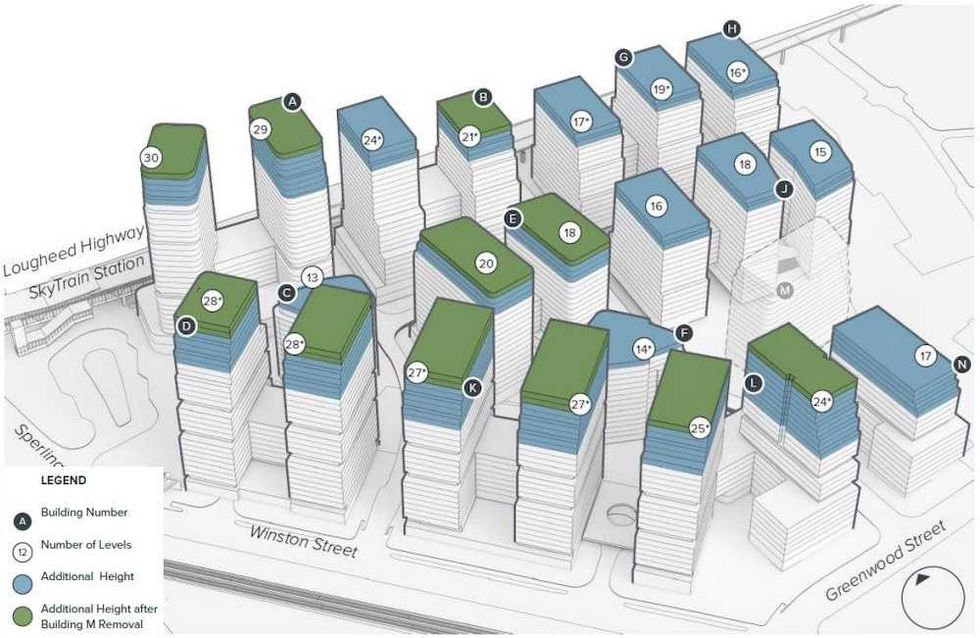 Building height changes from the previous master plan apllcation. (Peterson)
Building height changes from the previous master plan apllcation. (Peterson)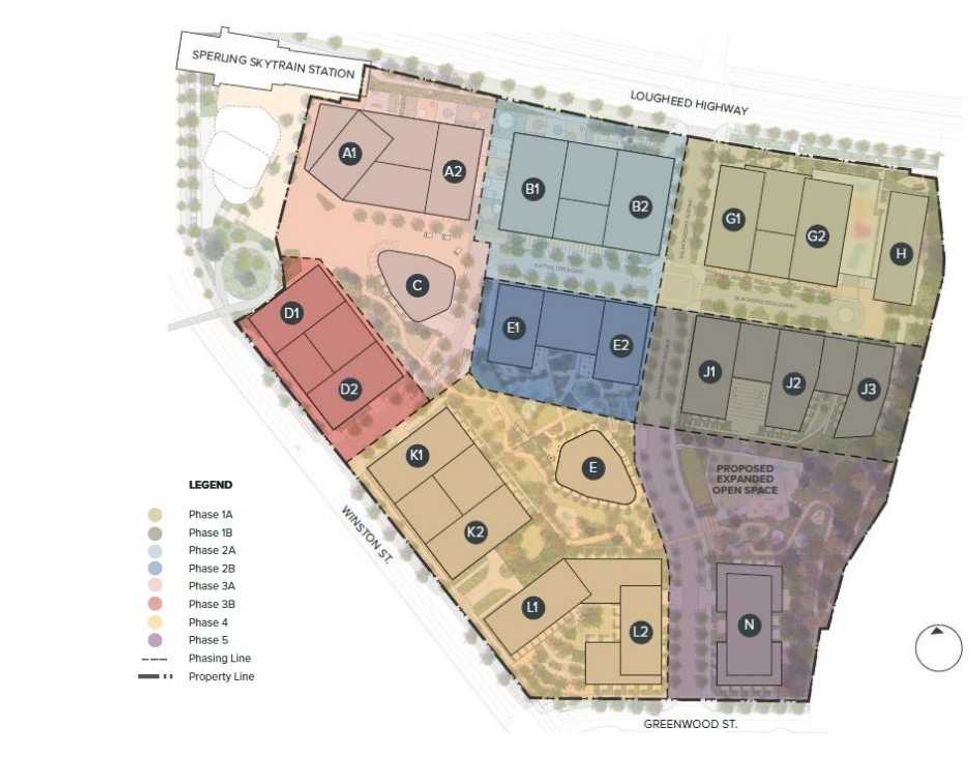 An overview of Blake Village and the phasing plan. (Peterson)
An overview of Blake Village and the phasing plan. (Peterson)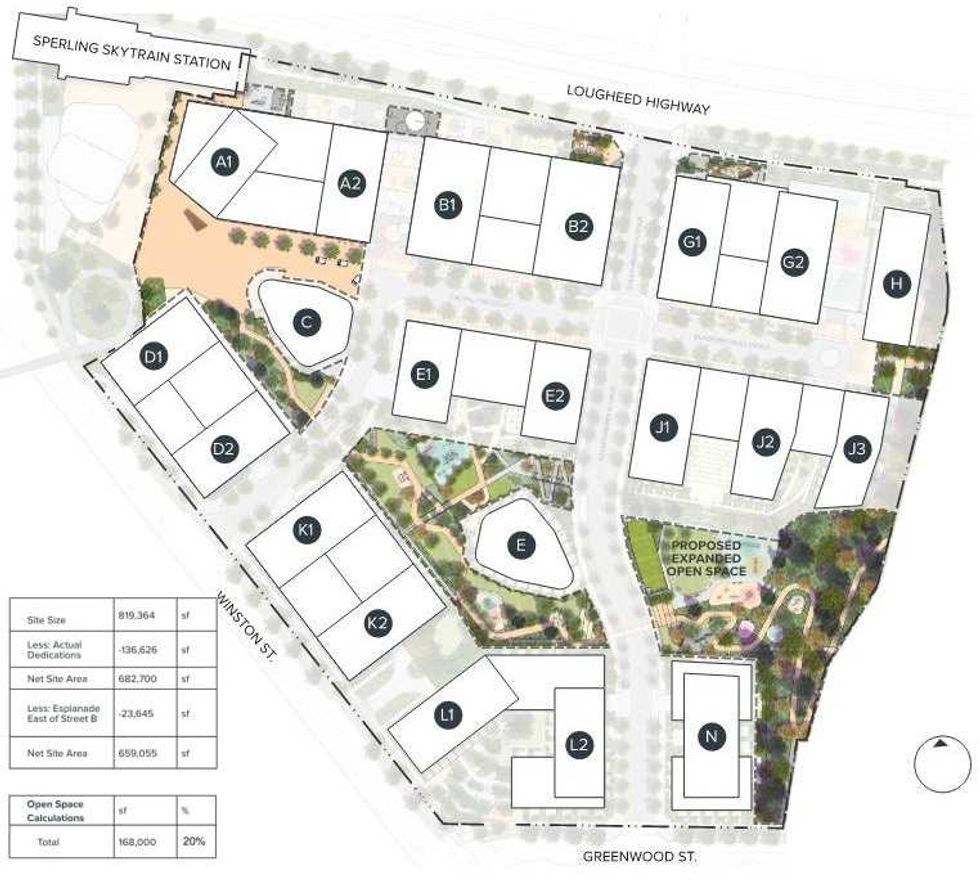 An overview of Blake Village and planned open space. (Peterson)
An overview of Blake Village and planned open space. (Peterson)

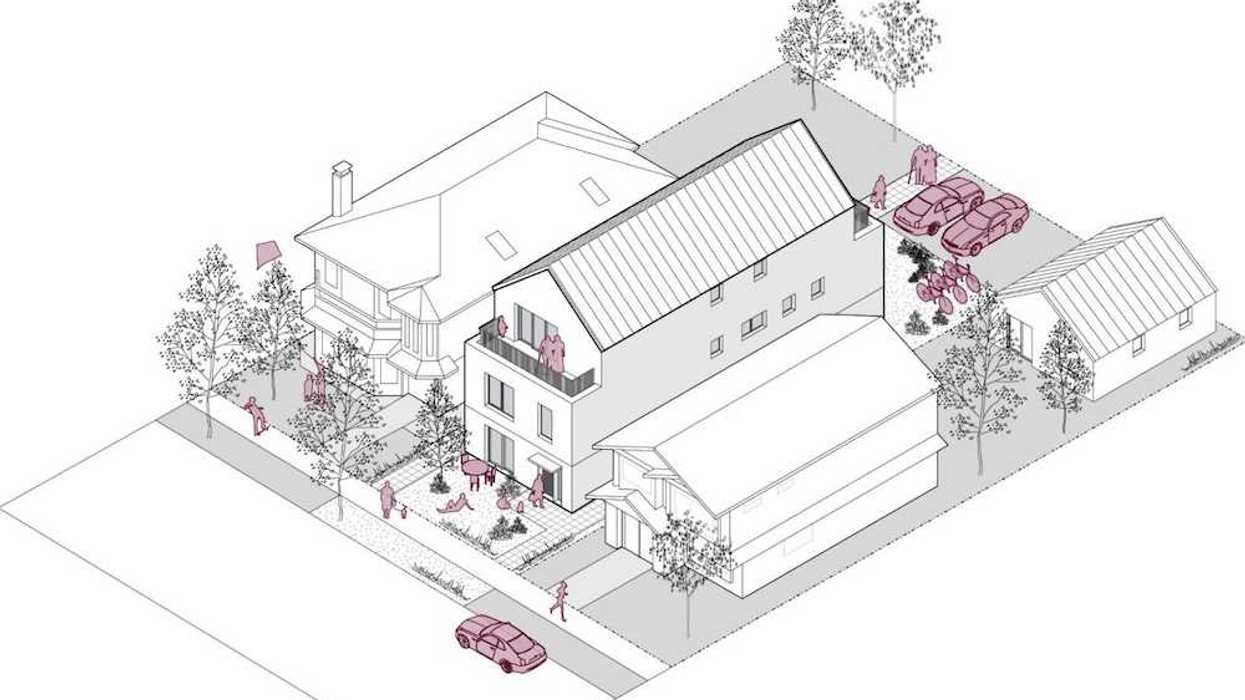


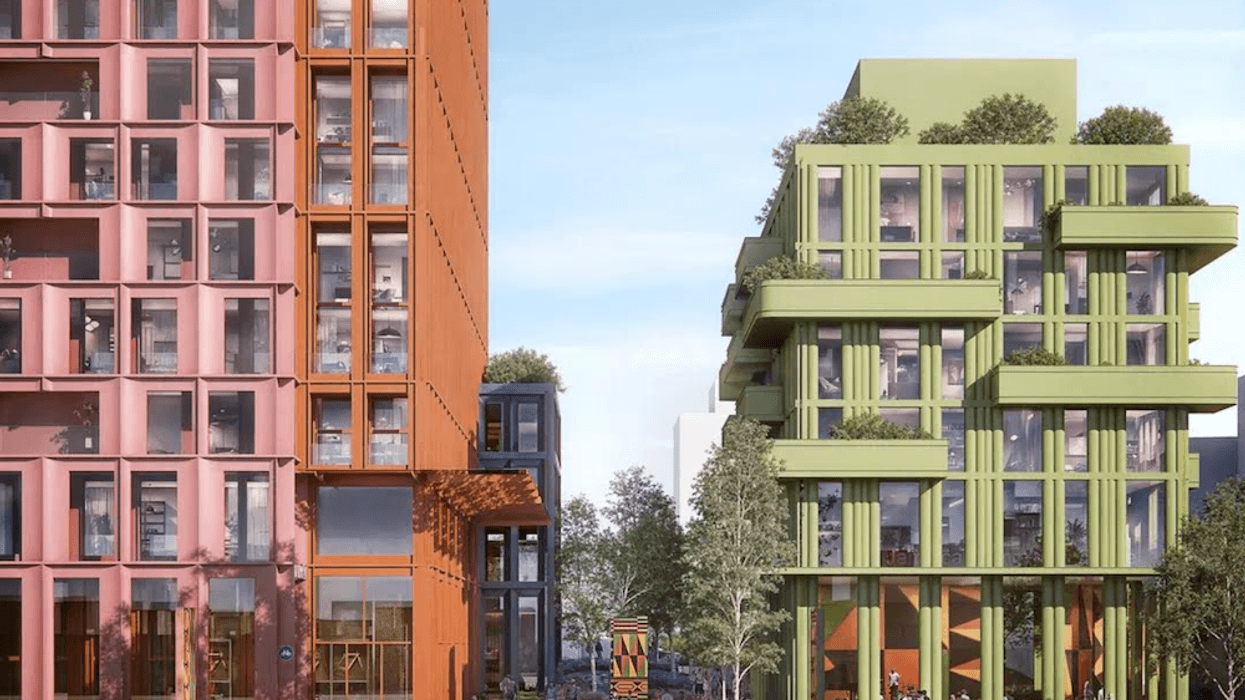




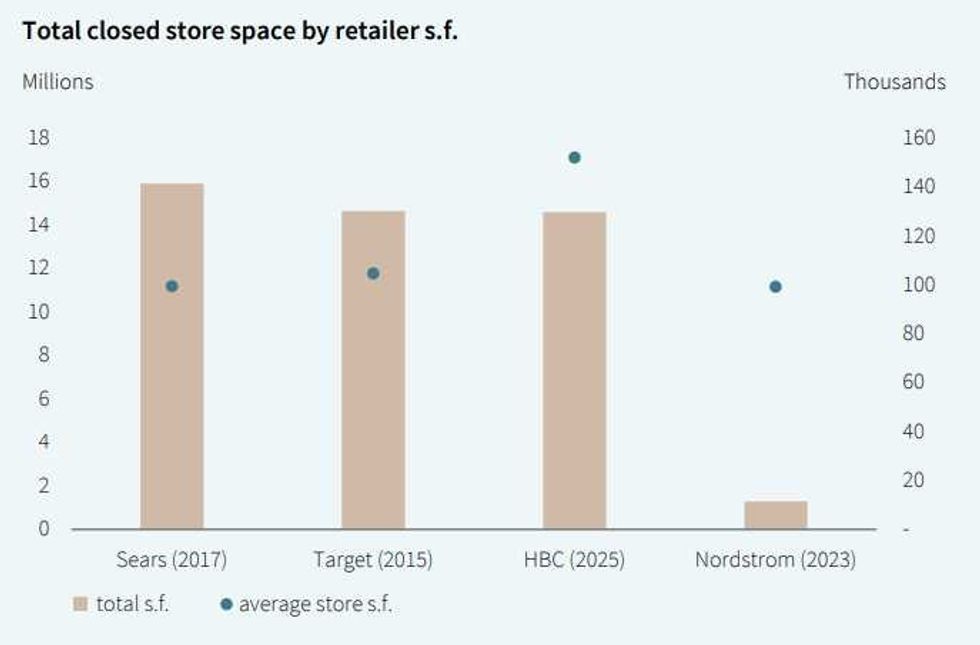 Hudson’s Bay vacated about as much space as Target did in 2015. (JLL)
Hudson’s Bay vacated about as much space as Target did in 2015. (JLL)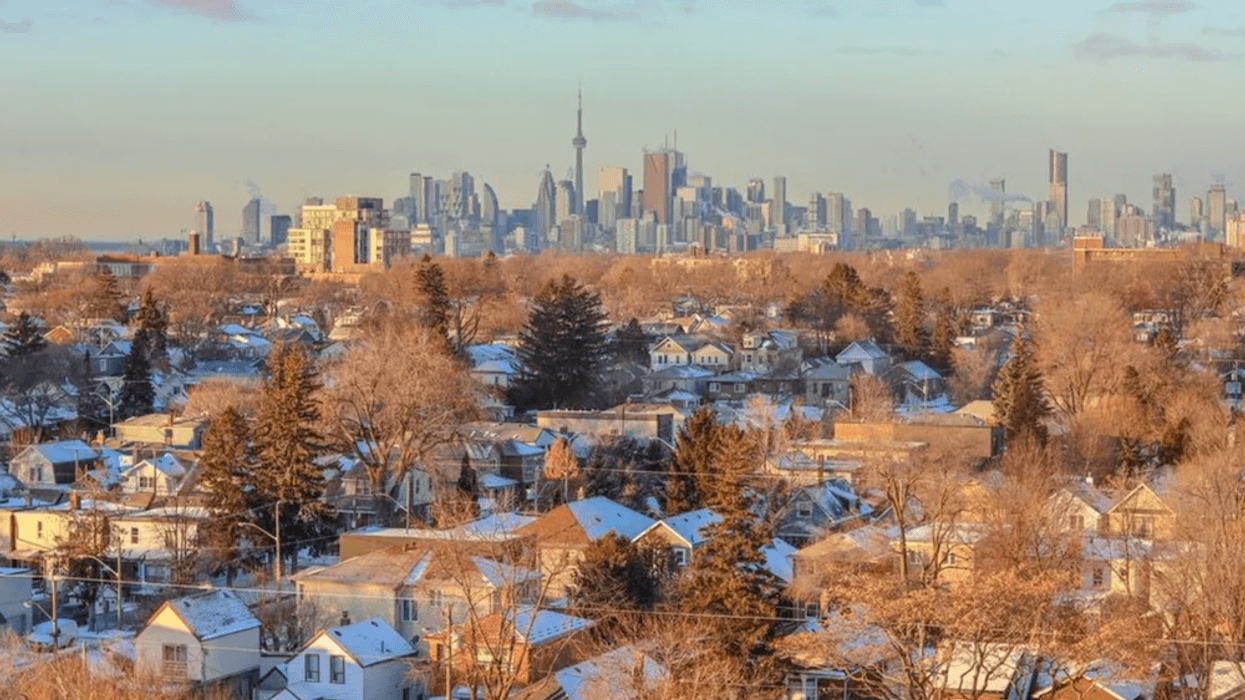

 A rendering of Frame in East Vancouver. (Peterson)
A rendering of Frame in East Vancouver. (Peterson) The Tesla facility set for 908 Raymur Avenue in Vancouver. (Beedie)
The Tesla facility set for 908 Raymur Avenue in Vancouver. (Beedie) Phase One of Sen̓áḵw in Summer 2025. (OPTrust, Nch’ḵay̓)
Phase One of Sen̓áḵw in Summer 2025. (OPTrust, Nch’ḵay̓) (QuadReal Property Group, Westbank)
(QuadReal Property Group, Westbank) The two-tower Cascades project under construction in mid-2025. (Ledcor)
The two-tower Cascades project under construction in mid-2025. (Ledcor) A rendering of Perla near Central Park. (Polygon Homes)
A rendering of Perla near Central Park. (Polygon Homes) Phase One of Concord Metrotown is located at the corner of Kingsway and Nelson Avenue in Burnaby. (Concord Pacific)
Phase One of Concord Metrotown is located at the corner of Kingsway and Nelson Avenue in Burnaby. (Concord Pacific) Myriad will complete Concert Properties’ Heart of Burquitlam community. (Concert Properties)
Myriad will complete Concert Properties’ Heart of Burquitlam community. (Concert Properties) SOCO 2 (left) in Coquitlam. (Drew Powell, LinkedIn)
SOCO 2 (left) in Coquitlam. (Drew Powell, LinkedIn) King George Hub in Surrey. (Submitted by PCI Developments)
King George Hub in Surrey. (Submitted by PCI Developments)